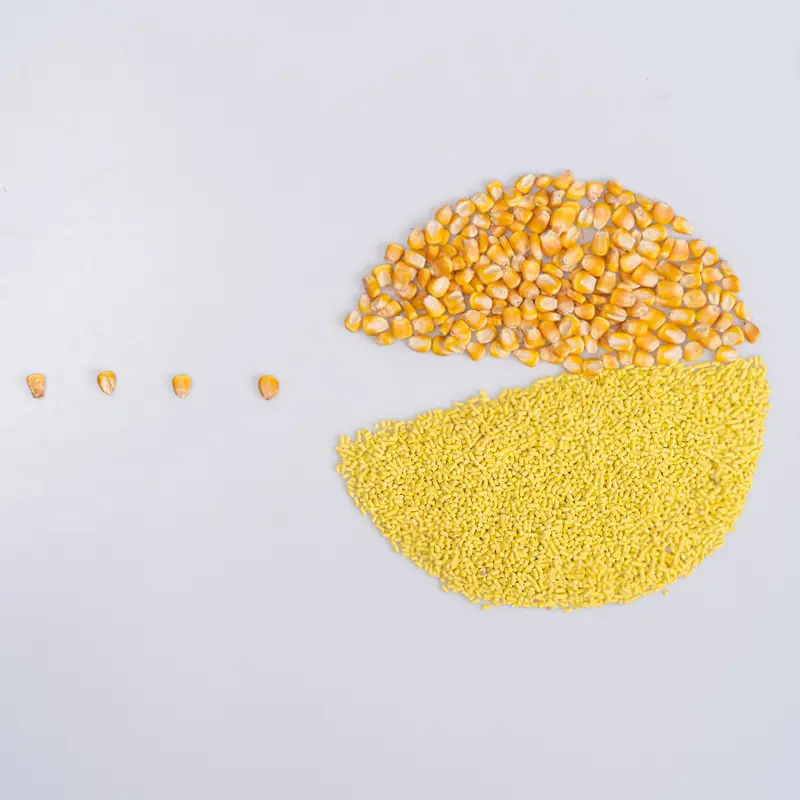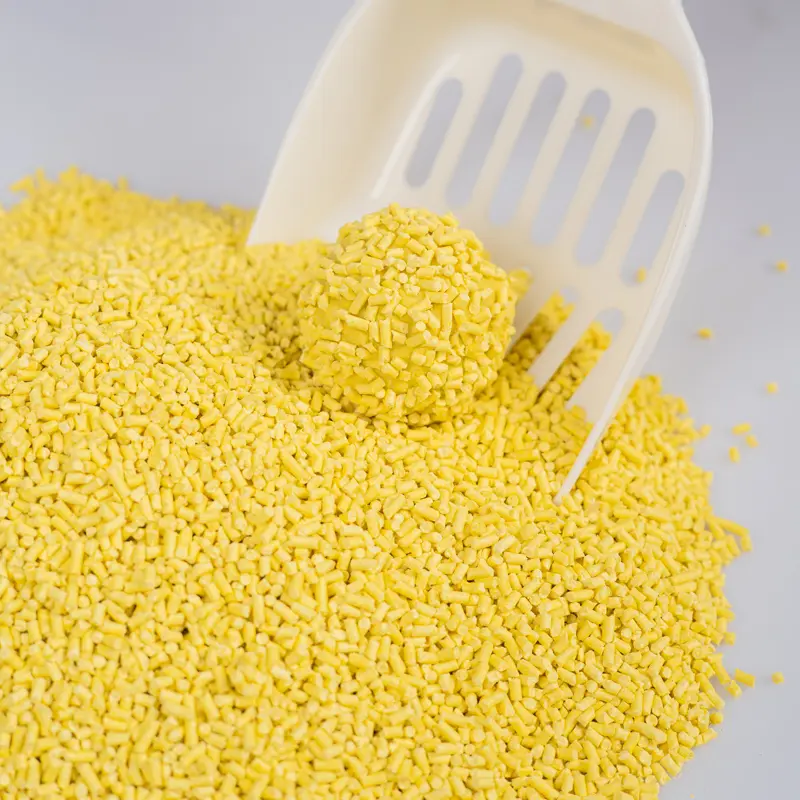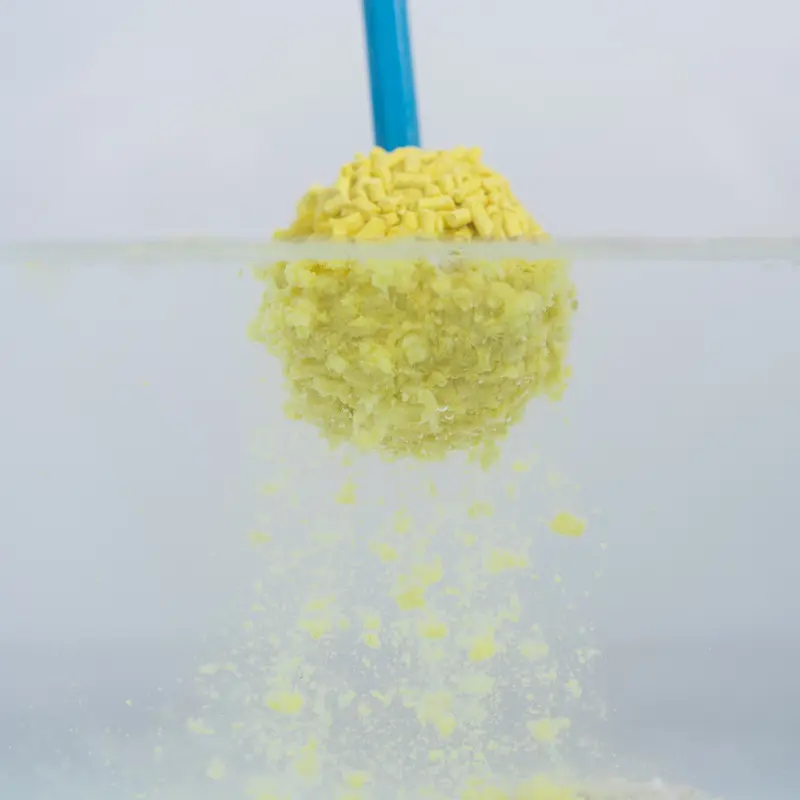
Corn cat is a form of kitty made from corn kernels. It’s an option to traditional clay-based cat litters and is also considered more beneficial to our environment by some cat owners. Corn litter is made of natural, renewable resources, which can make it a beautiful selection for those concerned about the environmental impact of cat litter disposal.In recent year, it really is becoming a lot more popular in market, due to the high absorption, hard clumps and good odor controls, but it also has its own cons, Let’s discuss its advantange and disadvantage.
________________________________________
What’s Corn cat litter?
Corn cat, also called corn-based litter, is a type of kitty made primarily from corn kernels or corn-based materials. This is an replacement for traditional clay-based or silica gel cat litters.
Corn cat can be a bio-based kitty product derived primarily from corn kernels or corn-based materials. It shines available in the market due to the green attributes and growing appeal to consumers seeking sustainable pet care options.

From your commercial standpoint, corn cat offers several key selling points. It is often marketed like a natural, biodegradable, and renewable option to traditional clay-based or silica gel cat litters. This eco-friendly appeal resonates well with environmentally conscious owners, driving its increasing popularity in the pet care industry.
The item boasts effective odor control and clumping properties comparable to conventional litters, forming clumps upon contact with moisture for easier waste removal. Additionally, its dust-free nature interests consumers concerned about respiratory issues in their pets or households.
Wholesale distributors recognize the value of highlighting these functions to retailers, emphasizing the product’s benefits in marketing campaigns and purchases pitches. They aim to educate retailers around the features of corn cat, providing them with promotions and details to effectively communicate these benefits to prospective customers.
Furthermore, from your business perspective, corn litter presents opportunities for retailers to diversify their product offerings and serve the preferences of canine owners seeking more natural and sustainable selections for their pets. It enables retailers to make use of an evergrowing market segment focused on eco-conscious pet maintenance systems.
As with every product, wholesalers and retailers continually assess consumer feedback, market trends, and product performance to make certain they meet customer demands and gaze after an affordable edge from the pet care industry.
So what are the Pros and Cons of corn litter?
Pros:
• Biodegradable:
Corn cat litter is normally biodegradable making it from renewable resources, that may be attracting environmentally conscious cat owners.Its main materials are corn flour,corn starch and pea fibre, all of which are natrual and plant-based.
• Clumping Properties:
Corn-based litters have clumping abilities, making it easier to scoop out soiled litter and make the kitty clean.Our food-grade guar gum could make corn cat litter clumps well and non-toxic in your cat’s health.
• Low Dust:
Corn litter tends to produce less dust in comparison with clay-based litters, that may be beneficial for cats along with their owners, especially if your cat has respiratory sensitivities. Corn litter is made from the highest quality materials, it also not easy to generate the dust towards the bottom of kitty by using it.
• Natural and Non-Toxic:
Corn litter is made from natural corn kernels and is generally considered safe for cats. It’s totally free of synthetic chemicals and fragrances that some traditional litters may have.
• Odor Control:
As corn cat litter can clumps hard, it can be effective at controlling odors, making an effort to conserve a fresh-smelling environment.The corn materials may also help eliminate the odors.

“From this picture we can easily understand the clumps are tight, it may be coverd the odors and straightforward being scooped from litter box”
Cons:
• Tracking:
Corn litter could be vulnerable to tracking, meaning it might adhere to your cat’s paws and become spread around your house.However if you simply pick-up the right height and width of pellets, it will likely be hard to become got out of kitty.
• Scooping and Clumping:
Whilst it clumps well, the clumps is often softer and fewer robust compared to those formed by clay litters, making them much more difficult to scoop. Our corn litter with the best guar gum,that may be make clumps will be more tight than usual corn litter instead of an easy task to be broken.
• Attractiveness to Pests:
The natural scent of corn may attract insects, specially in humid or warm environments. Proper storage and hygiene are very important you need to issue.
• Cost:
Corn cat may be costlier than traditional clay litters, which may be considered for many cat owners.

“This picture showed the corn litter might be dissolved into water rapidly, therefore it could be flushed in your toilet”
OEM (original equipment manufacturer) corn cat litter and wholesale corn cat are a couple of different business models, with each having some advantages and disadvantages.
OEM VS Wholesale corn cat litter
OEM Corn Cat (Original Equipment Manufacturer):
Pros
Brand autonomy: You can make your own brand image by printing your personal brand name and logo for the corn kitty packaging.
Low market risk: There is no need to formulate corn litter from scratch because existing items are already in the marketplace.
Target sales and marketing: You are able to concentrate on marketing and sales without having to spend energy and resources on production.
Possibility of customization: Corn cat features a certain a higher level customization and can be adjusted and modified in accordance with customer needs.
Cons
Low profit margins: Since corn cat litter is created by way of a vacation, returns could be lower. However, it saves the price tag on creating a factory, management costs, etc. From this perspective, zinc heightens returns.
Deficiency of uniqueness: Corn cat may lack uniqueness because other brands might use precisely the same OEM manufacturers to create similar products. Therefore, you are able to consult with us the parameters of customized corn cat litter to avoid homogeneity and cost competition.
Dependence on external suppliers: Dependence on external suppliers is high and could be affected by the supplier’s production capacity and qc.
Wholesale corn cat litter:
Pros
Higher Income: Higher returns can be carried out by wholesale corn cat litter because the production expense of corn litter is likely to be lower.
Greater Brand Control: Might have greater control over brand image and market positioning because Corn Cat Litter is made and sold directly by itself.
Flexibility: Product specifications, packaging, etc. may be more flexibly adjusted in order to meet market demand.
By wholesale selling corn cat litter business companies’ brands, you don’t need to invest much cash in early stage.
Cons
High initial cost: higher capital investment is required for production equipment, recycleables and hr.
Market risk: Market risks should be borne, including poor product sales, inventory backlog and other issues.
Production management challenges: Challenges in managing production processes, qc, etc. may necessitate certain expertise and experience.
Split into another person’s brand, you’re marketing and publicizing it for another person.
Therefore, choosing OEM corn cat litter or wholesale corn cat depends upon the problem and preferences with the company. If a company really wants to focus on sales and marketing and is ready to undertake some supply chain management challenges, then choosing an OEM could possibly be correct. And when the company really wants to better control the manufacturer image and have higher returns, and is happy to invest additional money and resources being produced, then wholesale may be more desirable.
As with all litter type, it is critical to monitor your cat’s reaction when transitioning to a different litter. While corn litter is usually safe, some cats could have individual sensitivities or allergies. If your cat experiences discomfort or health concerns after switching to corn litter, discontinue use and consult with your veterinarian.
Ultimately, selecting kitty depends on your cat’s preferences, your environmental concerns, plus your specific needs as a dog owner.Gelin Town Pet develop a wide range corn cat litter, all their product could be submitted on your test.If you have any interest, please call us.
More information about Tofu Cat Litter browse our new webpage
